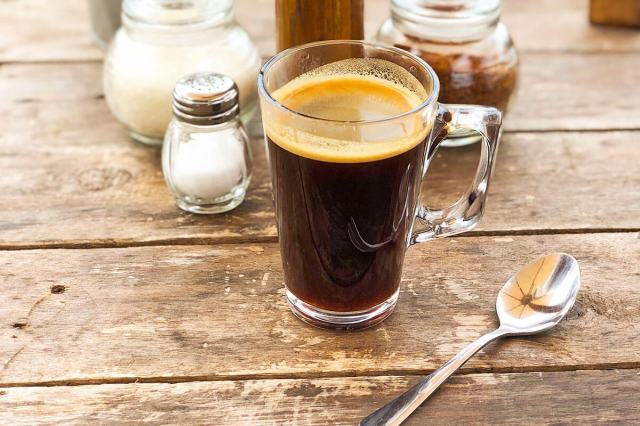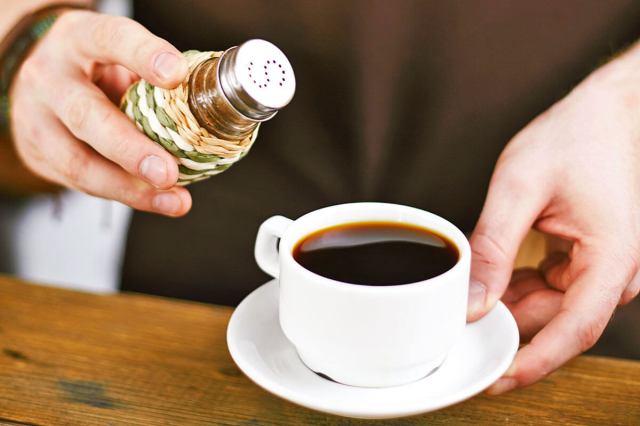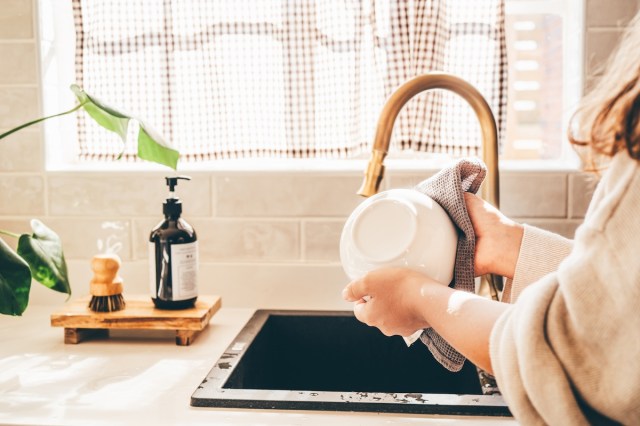Coffee is essential to many of our morning routines. Skipping this sacred ritual would render some of us useless. Imagine the disappointment of taking that coveted first sip, only to be greeted with a bitter, undrinkable brew — yuck. Don’t dump your mug just yet. Instead, head to the pantry. Don’t reach for the sugar, and not the creamer, either. Grab the salt. That’s right. Salt is a surprising hack that can improve the flavor of coffee and decrease bitterness. But how does it work, and does it taste too salty? Curious coffee drinkers can find these answers and more below.

Banish Bitterness
For centuries, salt has been a secret ingredient in coffee, particularly in Northern Europe and East Asia, to improve its flavor profile. Even during World War II, U.S. Navy sailors added salt to their bitter ship coffee to make it palatable. This age-old practice, endorsed by modern chefs and food experts, continues to be a game-changer in the world of coffee.
The number one reason to add salt to your coffee is to balance out its flavor. After all, salt enhances the taste of food, so why not try it in your coffee? Salt cuts through bitterness, which can be especially beneficial if you’re using stale or burnt coffee beans. As the sodium ions reach your tongue, they bind with sodium receptors, blocking the brain from receiving the bitter flavor. Instead, the ions amplify other flavors, such as sweetness, nuttiness, or fruitiness. And don’t worry — your coffee won’t taste briny if you don’t overdo the added salt.

How Much Is Too Much?
When trying this hack, remember that a little goes a long way. Add just a pinch of salt to a regular cup of coffee. (For those wondering, a pinch is about one-sixteenth of a teaspoon.) Any type of salt works, including kosher, table, and sea salt. Some might have a stronger flavor than others, so use it sparingly and taste test before adding more.
Television personality and food expert Alton Brown adds salt to his coffee grounds before he brews it. He prefers kosher salt to “knock off some of the bitter edge.” If you’re adding salt to an entire pot of coffee like Alton, he recommends using one-quarter of a teaspoon of salt per six tablespoons of grounds. He adds, “That isn’t really enough to taste, but it’ll do the trick.”

The Versatility of Salted Coffee
The salt hack works with all types of coffee, including cold brew and espresso drinks. One TikTok coffee influencer, Noah Stern, famous for his coffee recipes, often uses salt in at-home recipes, including his salted white chocolate mocha, in which the salt is added directly into the espresso. He also includes salt in his traditional Greek frappe recipe, adding a small dash before whipping it together. “The salt neutralizes the bitterness in the coffee, making it smoother and less sharp.” One common theme prevails in all successful salted coffee recipes: Don’t overdo it — usually, a pinch is more than enough.
While adding salt to your coffee can significantly enhance its flavor, it’s important to note that those conscious about their sodium intake should use this hack sparingly.
Reader Favorites

Alternative Add-Ins
Many coffee drinkers use sugar or creamer to add sweetness and mask bitterness, but other add-ins can work just as well. Fat, such as dairy or plant-based milk, ice cream, and even butter, can help. Spices, such as cinnamon (the most popular choice), nutmeg, cloves, or ginger, are also effective. Another addition to consider is citrus, which might sound odd but is very popular in Europe, especially in Italy, where an espresso and lemon juice is called an espresso romano.

More Ways to Improve Bitter Coffee
If adding salt or other flavorings isn’t conducive to your diet or personal tastes, there are different ways to reduce bitterness and improve the flavor profile of black coffee. One option to consider is brewing weaker coffee. This sounds unappealing, we know, but adding less coffee (or more water) will result in weaker coffee, which, in turn, is less bitter. This method might not be everyone’s cup of tea (or, erm, coffee), but for some, it’s an easy fix.
Another recommendation is to pay attention to the type of coffee beans you use. There are two main types of beans: Arabica and Robusta. If you find your coffee too bitter, opt for Arabica coffee beans, which are milder and more forgiving than Robusta beans. Additionally, if you grind your coffee beans at home (especially for espresso), use a coarser grind setting to improve the flavor. A coarser grind results in less extraction, which means it is less bitter. Remember, everyone’s taste preferences are different, and you might find that a combination of these suggestions works best for your brew.
More From Our Network
Better Report is part of Inbox Studio, an email-first media company. *Indicates a third-party property.
















